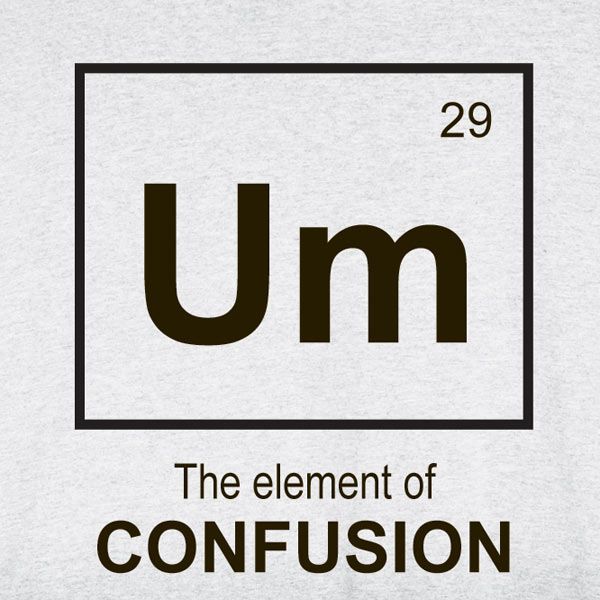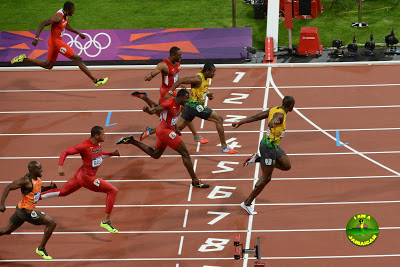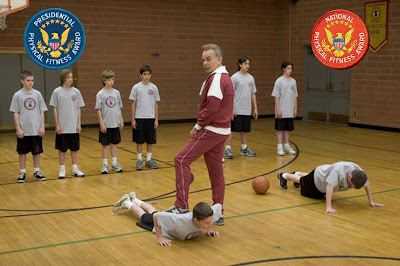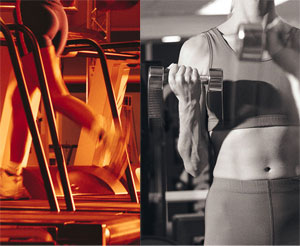How to decide when you don’t know how to decide

I don’t know why they picked 29, since that the atomic number for copper, but this design is from http://www.whatonearthcatalog.com/cgi-bin/hazel.cgi?action=DETAIL&ITEM=CL9321
Two things happened this week that inspried me to write this post: Read More...
To anyone that says, "A randomized controlled trial in nutrition is impossible!" I can now say, "You just don’t want it badly enough."
 Should you go on the Mediterranean diet?
Should you go on the Mediterranean diet?As you are already probably aware, the Mediterranean diet is one of the diets that started it all. Its rules are relatively simple: lots of olive oil, lots of fruits and nuts, lots of vegetables and cereals, and some fish and chicken, and not a lot of dairy, red meat, processed meats, and sweets and some wine (And while Greece is part of Mediterranean, Greek yoghurt does not seem to feature prominently in this diet–so think on that a bit…)
The Mediterranean diet has been studied a lot. One could argue that of all the diets that have gone though fad phases, including the Atkin’s diet, the Mediterranean diet has been studied the most. In particular, its effects on preventing cardiovascular events (stroke, heart attacks and death from either) has been of particular interest. There have been major cohort studies, but never a randomized controlled trial. Read More...
How many sprinters does it take to change a lightbulb, or what about important but not significant?

I often have discussions with non-methodologists about statistics and research methods. What can I say, it’s what I do. Statistics is one of those things that everyone has to learn, but most people feel they just don’t understand. So, instead of trying to understand it, they create hard-and-fast rules for themselves to get around it. It’s like chronic double-clickers; you know, that one person you know at work or in your family that double-clicks EVERYTHING, and doesn’t know how to right-click? Generally, it’s people who don’t understand, or aren’t comfortable with computers. They know that some things require double-clicks and it seems to work most of the time, so instead of figuring out that hyperlinks only need one click, they just double-click everything. And they use the menus for everything, including cutting and pasting, because they find CTRL-C and CTRL-V to be too advanced, and even after you show them several times that, “Hey, look how much faster it is to do it this way!” they say something like, “That’s too complicated for me,” but won’t relinquish the mouse or keyboard to you, and then still complain that, “It takes forever to do that on a computer.” And no, this is definitely not my dad. In any way whatsoever. In the research world, it’s similar–people who ONLY use ANOVAs, or rely on normality statistics to figure out if a distribution is normal (just graph it!) for instance…but I’m getting off topic.
There is the argument that statistics limit progress, or that the requirement for something to be statistically shown is restricting because there can be small, but important effects in small populations, therefore making it mathematically very difficult to “obtain” a p-value less than 0.05. Read More...
Bias doesn’t always work against you (or why gym class might not be all it’s cracked up to be)

This blog entry’s study comes from my friend Brad Pilon, who said, and-I-quote, “I wanna get you back to dissecting papers on your blog,” which jolted me into realizing I haven’t in a long time.
One idea that Brad and I have been talking about (apart from trying to stick to manipulating factors that make LARGE contributions to progress) has been the notion that diet and exercise, though both important for “health” and “fitness”, may have little contributions towards their counterpart body components. Diet seems to have the greatest impact on body fat, while exercise (and more specifically, resistance exercise) seems to have a greater impact on lean body mass. While one CAN use exercise to assist in losing body fat, I think there is probably some truth in the saying, “You can’t out-train a bad diet,” and similarly, I would argue that at most levels, you probably can’t eat yourself more muscles, otherwise, there would an epidemic of Ah-nolds in America, not obese people. Read More...
Aerobic exercise vs weights. Who will win?

There is no question that diet and exercise both play a role in fat/weight loss. Schools of thought range from the “it matters more what you eat” camp to the “it matters more how much you move with subgroups ranging from the “it matters how many calories you eat” camp to the “it matters if you do weights” camp and then the all-popular, “just move more” vs. “move, but move really really fast in short intervals of time” camps.
Jen Sinkler of Experience Life magazine brought this study to my attention, because I belong to the, “it matters if you do weights and probably doesn’t matter much if you move more, whether at a steady pace or really really fast in burst intervals.” camp ((mostly out of laziness and abhorrence of “cardio”) Read More...
It was bound to happen
 This blog entry is courtesy of Fran Mayo who read an article in “Runner’s World” about some of the benefits of drinking pomegranate juice. It was fairly inevitable that I would get around to talking about pomegranate juice. It is, after all, all the rage right now and POM is currently in the media regarding some dubious health claims.
This blog entry is courtesy of Fran Mayo who read an article in “Runner’s World” about some of the benefits of drinking pomegranate juice. It was fairly inevitable that I would get around to talking about pomegranate juice. It is, after all, all the rage right now and POM is currently in the media regarding some dubious health claims.
There are lots of reasons to drink pomegranate juice. Personally, when it first came out as a commercial product, I thought it was a pure novelty. I mean, have you ever EATEN a pomegranate? It takes FOREVER. The whole idea of juicing enough fruit to make a whole bottle of pure pomegranate juice was just unfathomable. So from my perspective, one of the reasons to drink pomegranate juice is because you can. All that pomegranate-y taste without the painstaking work. Read More...
Actually, yes, you can.
 The amount of time one rests between sets is an often missed, or often underestimated training variable. It’s also one of the least studied variables when it comes to looking at hypertrophy as the outcome (as opposed to strength, or other performance variables, or even biochemical markers). So it is a treat to see a study where hypertrophy is the variable of interest, and where measurement of hypertrophy is truly a direct measurement. While not every investigator can measure hypertrophy in this way, it does go to show that “It can’t be done,” or “It will never get done,” are just words, because these researchers, in the words of the famous Dos Remedios, “did work.”
The amount of time one rests between sets is an often missed, or often underestimated training variable. It’s also one of the least studied variables when it comes to looking at hypertrophy as the outcome (as opposed to strength, or other performance variables, or even biochemical markers). So it is a treat to see a study where hypertrophy is the variable of interest, and where measurement of hypertrophy is truly a direct measurement. While not every investigator can measure hypertrophy in this way, it does go to show that “It can’t be done,” or “It will never get done,” are just words, because these researchers, in the words of the famous Dos Remedios, “did work.”
de Souza TP, Fleck SJ, Simao R, et al. Comparison between constant and decreasing rest intervals: Influence on maximal strength and hypertrophy. Journal of Strength and Conditioning Research 24(7) 1843-1850, 2010. Read More...
If research isn’t the "real world", then what can it show us?
 When I was in physics class in my undergraduate degree, I remember doing an experiment to demonstrate the laws of momentum. I don’t remember the specifics of the experiment, but I do remember using an air-table (similar to an air hockey table, but smaller) and pucks (similar to air hockey pucks, but smaller) to demonstrate how conservation of momentum occurs in an almost frictionless environment.
When I was in physics class in my undergraduate degree, I remember doing an experiment to demonstrate the laws of momentum. I don’t remember the specifics of the experiment, but I do remember using an air-table (similar to an air hockey table, but smaller) and pucks (similar to air hockey pucks, but smaller) to demonstrate how conservation of momentum occurs in an almost frictionless environment.
Now, I don’t know about you, but I don’t live in a frictionless world. Those of you who live on air-hockey-table-like-environments, I can’t speak for you. And back then, I probably thought very similarly to the way some people think about research now: “If nothing on Earth is truly frictionless, short of air-hockey tables and mag-lev devices, why do we have to do this experiment?” The answer back then, was, “Because we’re telling you do it, so quit bitching already and push the friggin’ puck.” But I’ve tried that answer on people who ask, “We never use supplement X/training technique Y in tightly controlled situations, so how do the results of these studies help us?” and a) it doesn’t go over very well, and b) they’re really confused about some mysterious puck. Read More...
Six people. One study. No practical outcomes. You drink protein before working out.
 There is a neat research tool that I use a lot. It’s called the Web of Science. A lot of you use PubMed to find articles. You punch in a topic and it spits out a list of studies about that topic (roughly). Web of Science is a similar database, but it’s like a reverse lookup for studies. I punch in a study and Web of Science tells me about all the studies that have citied that study (i.e. have listed it in the references). This is an extremely useful tool when looking for follow-up studies.
There is a neat research tool that I use a lot. It’s called the Web of Science. A lot of you use PubMed to find articles. You punch in a topic and it spits out a list of studies about that topic (roughly). Web of Science is a similar database, but it’s like a reverse lookup for studies. I punch in a study and Web of Science tells me about all the studies that have citied that study (i.e. have listed it in the references). This is an extremely useful tool when looking for follow-up studies.
We’ve already talked about very recent evidence about pre-workout protein and energy expenditure, so this week, I wanted to find the most recent evidence of using pre-workout protein for muscle growth, since that’s probably the REAL reason you’re drinking protein before a workout. While there are some studies that have looked at post-workout protein as well as both pre and post-workout protein, surprisingly, there haven’t been many studies on just pre-workout protein use and muscle growth. Read More...
